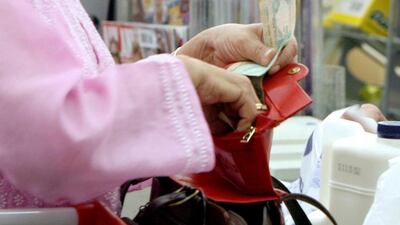Dubai inflation is running at its highest in nearly five years, driven by the soaring price of property.
The consumer price index edged up 3 per cent from a year earlier, the same rate of growth as the previous month, according to data from Dubai Statistics Centre. It rose 0.1 per cent compared to the previous month.
Housing and utility costs were the main catalysts of inflationary pressures. Housing accounts for about 40 per cent of the weighting on the index.
“This continues an upward trend that we expect to persist through this year and into next,”said Simon Williams, the chief economist for the Middle East and North Africa at HSBC.
“The last few years have been easier for Dubai because spare capacity in the labour market has helped keep prices low. We are coming now to the end of that cycle.”
In response to rising inflation, some employers have raised staff salaries this year.
Billy Turriff, data services and technology line business leader at Towers Watson, the human resources consultancy, estimated average salary rises in the UAE this year of 5 per cent, above its forecast inflation rate of 2.5 per cent. But he said the average inflation rate was more representative of prices faced by Emiratis, who benefit from subsidies.
“The actual inflation rate faced by the expatriate community is likely to be significantly higher. Consequently, expatriate employees are not likely to see any significant change in their disposable income during 2014.”
Until recent months, inflation has remained relatively subdued in Dubai since a debt crisis burst a property bubble that had been swelling before 2009. But an acceleration in the economy and a sharp recovery in property prices is gradually pushing prices for goods and services higher again. Real estate prices in Dubai have risen by about 60 per cent over the past couple of years, according to Reidin.com, a property information company.
The rise is gradually feeding through to higher rent. The housing component of last month’s index advanced 5 per cent compared to a year earlier. Economists say it takes time for rent rises in the real economy to be reflected in inflation data because of a lag effect.
Education costs are growing at a similar pace, although inflation in the sectors of health care, transport, hospitality and communications was lower. Food costs, which make up about 11 per cent of the index, slowed to 3.1 per cent from the previous year, down from 4.8 per cent the previous month.
Survey results released last month by Towers Watson showed 83 per cent of companies in the UAE planned to hike housing allowances paid to staff this year. Up to 40 per cent of an employee’s salary is made up of allowances to cover housing and education fees.
In January, Hamad Buamim, the president of Dubai Chamber of Commerce and Industry, warned that if rents continued to rise unchecked they could start to erode the emirate’s position as a centre for commerce. Some business leaders have echoed those anxieties.
“I don’t believe it is affecting competitiveness,” wrote Khatija Haque, the head of Mena research at Emirates NBD, in an emailed response to a question. “Inflation is at 3 per cent. For an emerging market, this is very low.”
It is also low compared to the peak of Dubai’s previous boom, when inflation in 2008 reached 10.8 per cent.
Lower credit growth and Central Bank regulations limiting bank mortgage lending have helped to limit higher rates of property inflation now. But a spate of new projects in the pipeline as Dubai prepares to host the World Expo 2020 could exert fresh inflationary pressures. Deutsche Bank has estimated that Dubai will require Dh158 billion to upgrade its infrastructure ahead of the event.
“It’s a time for policy action to curb prices before they become really entrenched,” said Mr Williams. “Really, it’s about controlling the pace of economic expansion to ensure it is consistent with price stability and fiscal and monetary policy.”
Dubai’s GDP is forecast by the Institute of International Finance to grow by 5.6 per cent this year, its highest level since 2007.
tarnold@thenational.ae
Follow us on Twitter @Ind_Insights

